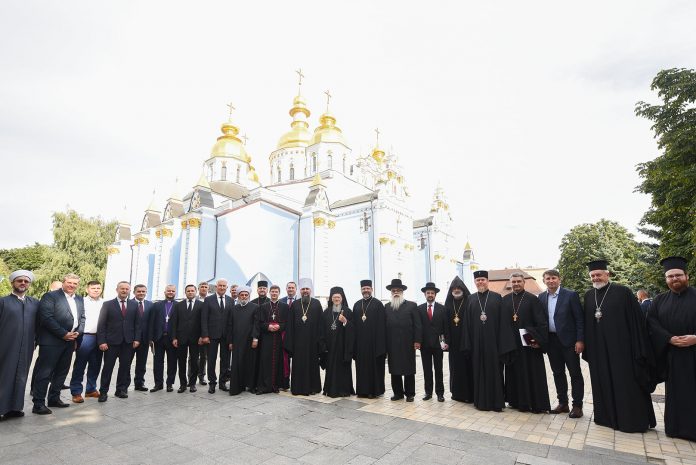Ο Οικουμενικός Πατριάρχης Βαρθολομαίος συναντήθηκε σήμερα με μέλη του Πανουκρανικού Συμβουλίου Εκκλησιών και Θρησκευτικών Οργανώσεων. Επί 25 χρόνια το Συμβούλιο συνεργάστηκε για την ειρήνη και την αλληλοκατανόηση.
Όπως εξήγησε στον Οικουμενικό Πατριάρχη ο Μακαριώτατος Μητροπολίτης Κιέβου και πάσης Ουκρανίας Επιφάνιος, μέσα από χρόνια συνύπαρξης Χριστιανών διαφόρων ομολογιών, Μουσουλμάνων και Εβραίων, και λόγω μακροχρόνιων πολέμων, η Ουκρανία έχει μια μοναδική διαθρησκειακή ατμόσφαιρα. Μέσα από αυτή την ιστορική εμπειρία, εκπρόσωποι διαφορετικών θρησκευτικών κοινοτήτων μπορούν να συνεργαστούν με βάση τον αμοιβαίο σεβασμό και τα ίσα δικαιώματα, την υπέρβαση των αντιπαραθέσεων και την επίτευξη συναίνεσης παρά τις διαφορές των απόψεων τους.
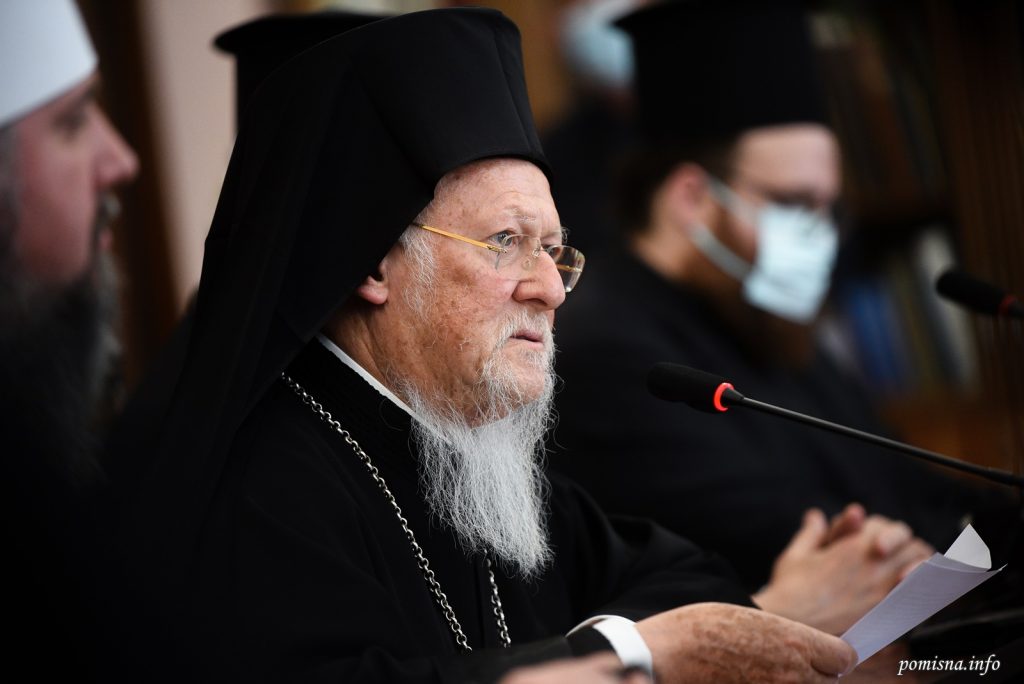
Ο Οικουμενικός Πατριάρχης Βαρθολομαίος, χάρη στην χρόνια εμπειρία του διαχριστιανικού και διαθρησκειακού διαλόγου, γνωστός στον κόσμο ως ′′αυτός που γεφυρώνει”, τονίζει πάντα την ανάγκη για διάλογο και συνεργασία μεταξύ των ανθρώπων. Ειδικά σημείωσε τον ρόλο της Εκκλησίας στην επίλυση των αντιφάσεων στην κοινωνία, καθώς είναι σε θέση να ′′χρησιμοποιήσει την πίστη για να ηρεμήσει και να θεραπεύσει τις πληγές των άλλων και όχι να ανάψει νέες φωτιές μίσους “.
“Είναι σημάδι ελπίδας ότι παρά τη φρίκη του 20 ου αιώνα, την πιο σκληρή εποχή στην ανθρώπινη ιστορία, η κατανόηση του διαλόγου γίνεται όλο και πιο σημαντικό εργαλείο για την οικοδόμηση γεφυρών και συμφιλίωσης”, τόνισε ο Οικουμενικός Πατριάρχης Βαρθολομαίος.
Ο Οικουμενικός Πατριάρχης είπε ακόμη:
“Για την Ορθόδοξη Εκκλησία, ο διαθρησκειακός διάλογος έχει τις ρίζες του, από την αρχή του, στην έκθεση της ίδιας της Ορθοδοξίας σε θρησκευτικά πλουραλιστικά περιβάλλοντα. Η διαθρησκειακή εμπειρία στις σύγχρονες πολυπολιτισμικές κοινωνίες μας συνδέεται ισχυρά με τη συνύπαρξη της Εκκλησίας με θρησκευτικούς παράγοντες και κοινότητες διαφορετικών ευαισθησιών και παραδόσεων. Ωστόσο, βιώνουμε εξίσου μερικές πολύ έντονες αντιδράσεις κατά του διαθρησκειακού, διαλόγου. Η άνοδος του θρησκευτικού φονταμενταλισμού και του εξτρεμισμού, του μίσους και του εθνοφυλετισμού, είναι ένα φαινόμενο που διαπερνά όλες τις θρησκευτικές παραδόσεις, προκαλώντας απομόνωση, στενότητα αντίληψης και απόρριψη της ετερότητας, στάσεις που αναιρούν την αυθεντική αποστολή της θρησκείας. Ο εξτρεμισμός και το μίσος επιδιώκουν να ιδιωτικοποιήσουν την αλήθεια προωθώντας ένα ήθος αμοιβαίας αποκλειστικότητας. Αντίθετα, πρέπει να προσπαθήσουμε – με πίστη στις αντίστοιχες παραδόσεις πίστης μας – να ενθαρρύνουμε τον αμοιβαίο σεβασμό και τη συνεργασία σε πνεύμα ειρήνης και αλληλεγγύης. Ένα πρόσφατο έγγραφο με τίτλο “Υπέρ της του κόσμου ζωής-Το κοινωνικό ήθος της Ορθόδοξης Εκκλησίας”, που εγκρίθηκε για δημοσίευση από την Αγία και Ιερά Σύνοδο του Οικουμενικού Πατριαρχείου, μας υπενθυμίζει ότι «οι διαθρησκειακές συναντήσεις και ο διάλογος είναι και θα εξακολουθήσουν να είναι το σημαντικό μέσο διά του οποίου ασκείται ο σεβασμός των θρησκευτικών διαφορών και διακηρύσσεται στην πράξη η αλήθεια. Ο διαθρησκειακός διάλογος δεν αφορά μόνον στην ανεύρεση κάποιας κοινής βάσης ή στον εντοπισμό κοινών πεδίων. Στην ουσία συνιστά και μία συνάντηση με τον άλλον σε προσωπικό και ανθρώπινο επίπεδο. Απαιτεί μάλιστα τον σεβασμό του ανθρώπινου προσώπου, το οποίο δημιουργήθηκε κατ’ εικόνα Θεού, και προβάλλει την αγάπη του Θεού προς όλη την ανθρωπότητα και όλη την κτίση.». Ομοίως, καλούμαστε εδώ με την ειρήνη της αληθινής συναναστροφής να ενεργήσουμε βάσει αυτών των ισχυρισμών και να έρθουμε πιο κοντά για να ζήσουμε αρμονικά ο ένας με τον άλλον”.
Προηγουμένως, τον Παναγιώτατο προσφώνησε με θερμούς λόγους ο Πρόεδρος του Συμβουλίου, Αρχιεπίσκοπος Σβιατοσλάβ, επί κεφαλής της Εκκλησίας των Ελληνο-Καθολικών της Ουκρανίας, ενώ την παρουσία του χαιρέτησαν ο Μακαριώτατος Μητροπολίτης Κιέβου και πάσης Ουκρανίας Επιφάνιος και τα υπόλοιπα μέλη του Συμβουλίου.
Αμέσως μετά, όλοι μαζί φύτευσαν συμβολικά τρία δένδρα στο πάρκο του Αρχαγγέλου Μιχαήλ, μπροστά από τον Μητροπολιτικό Οίκο.
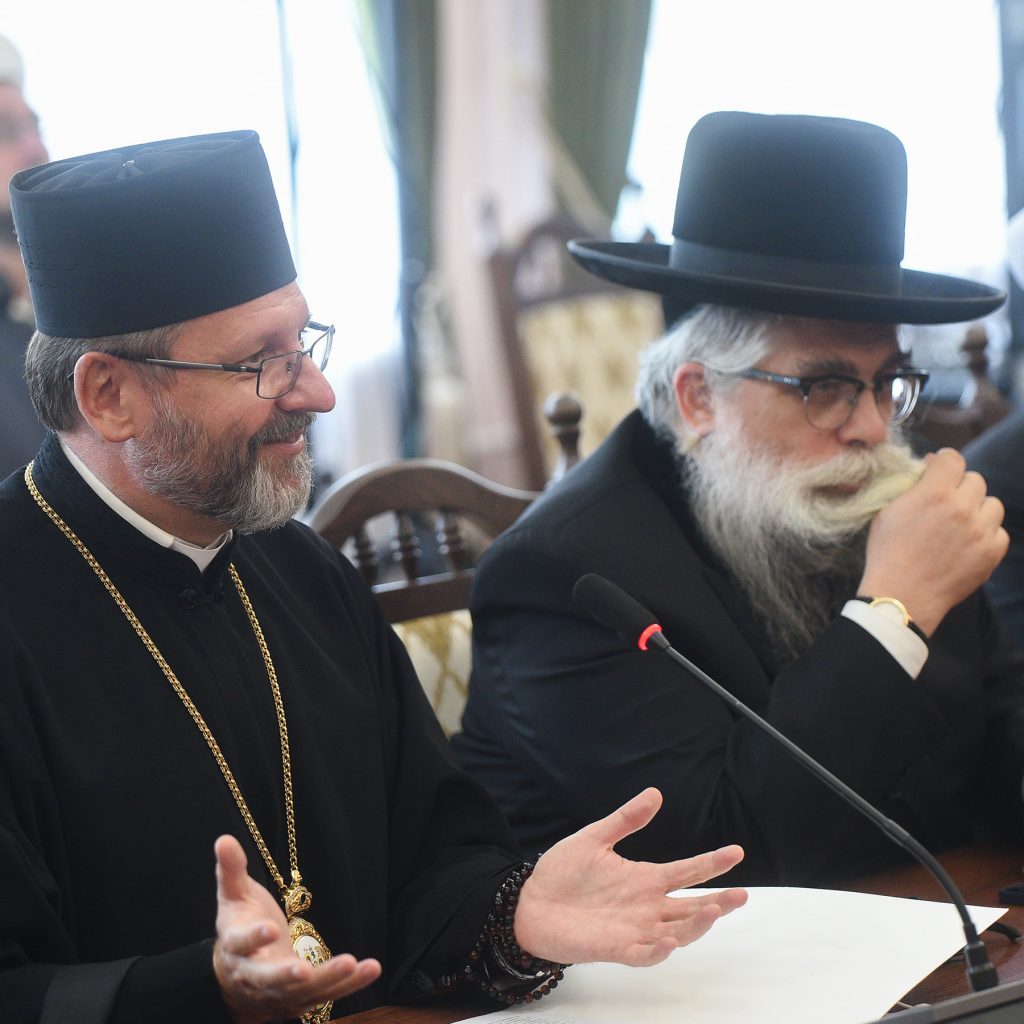
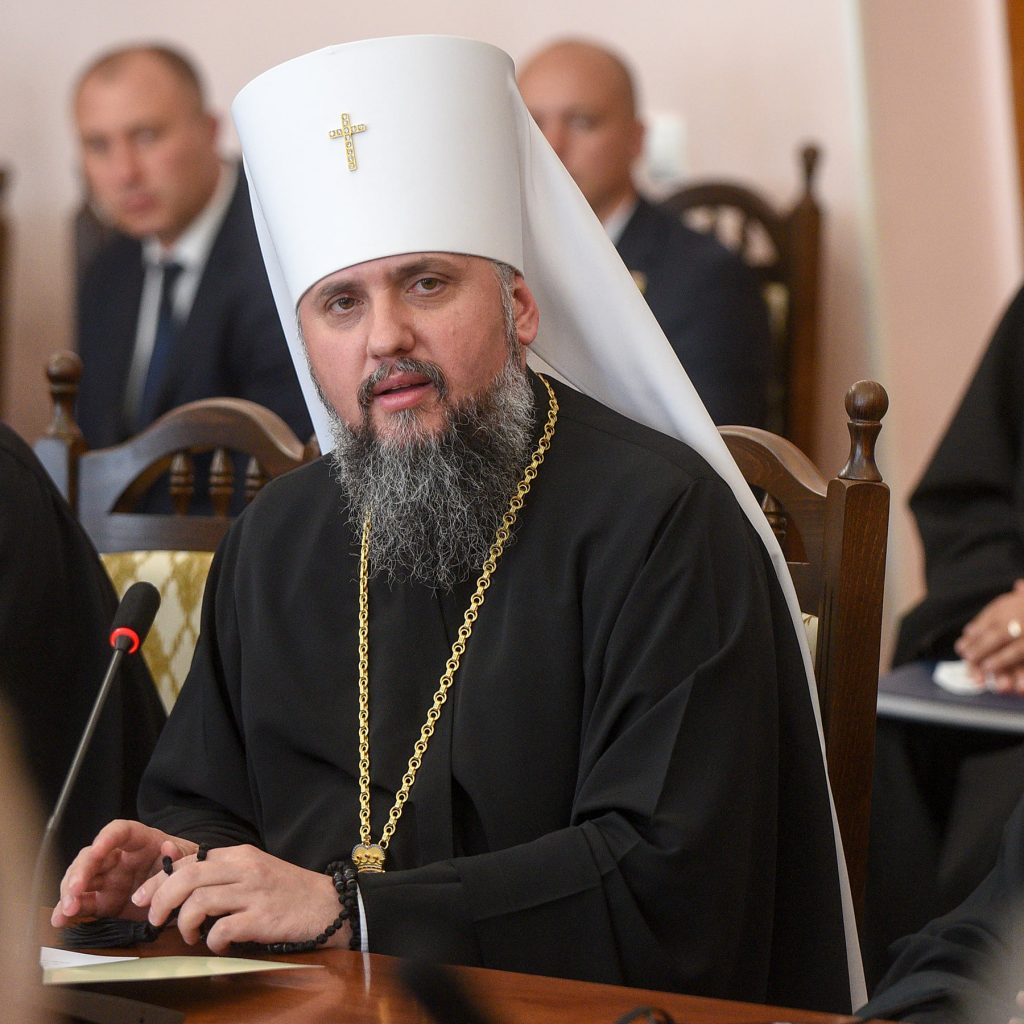
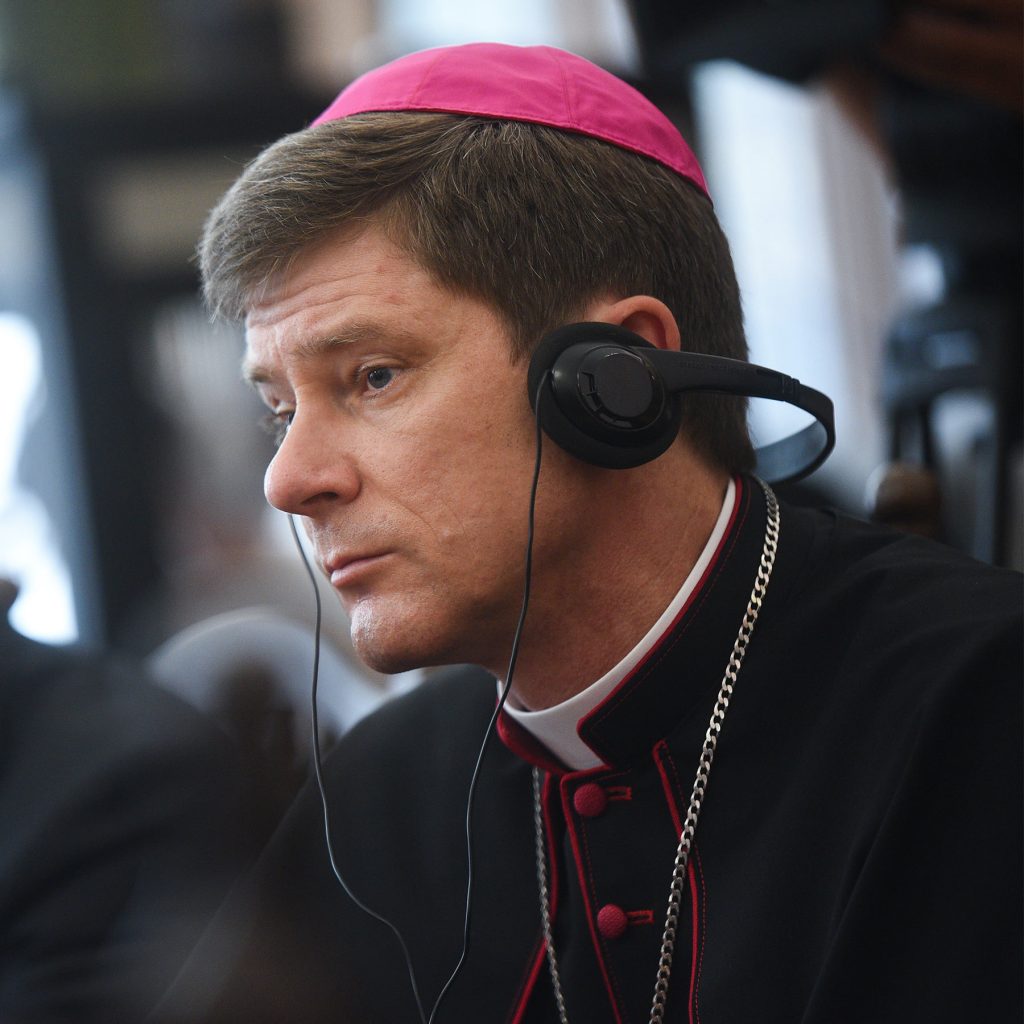
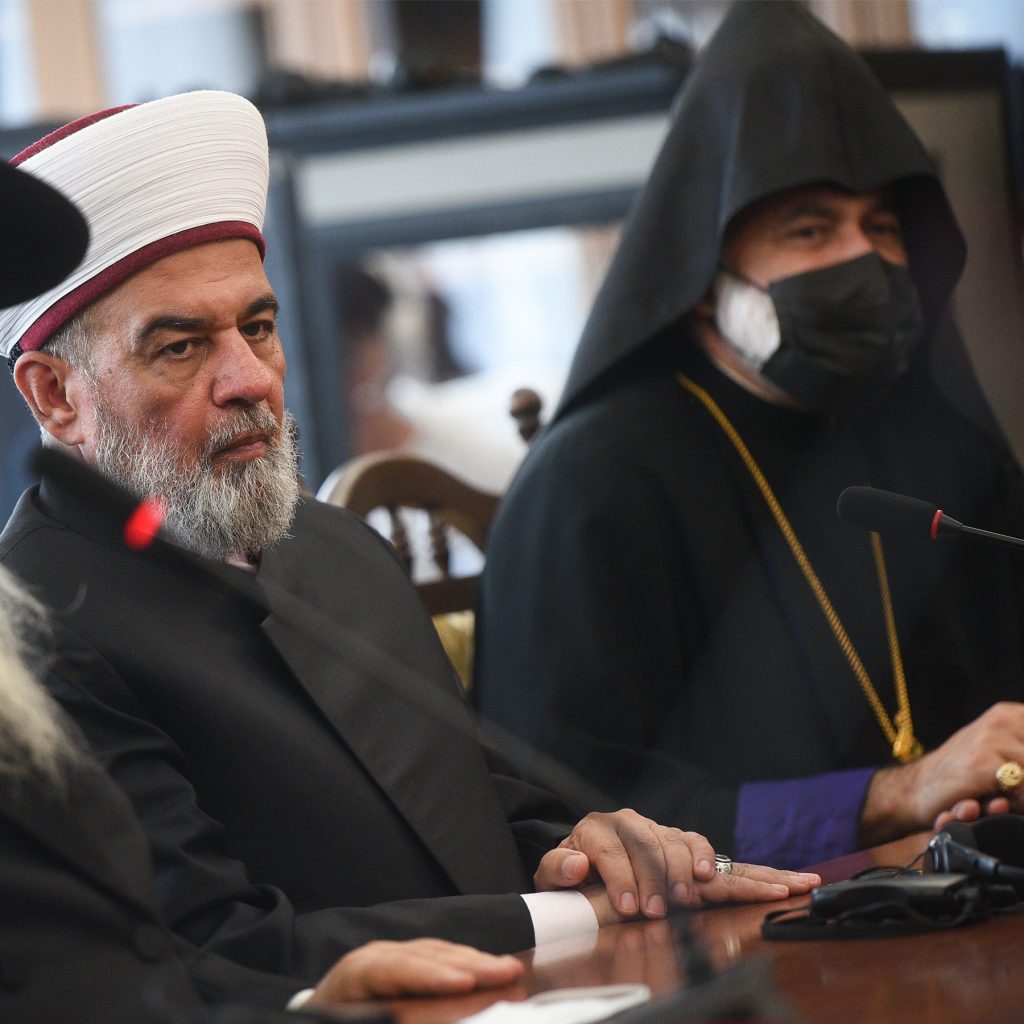
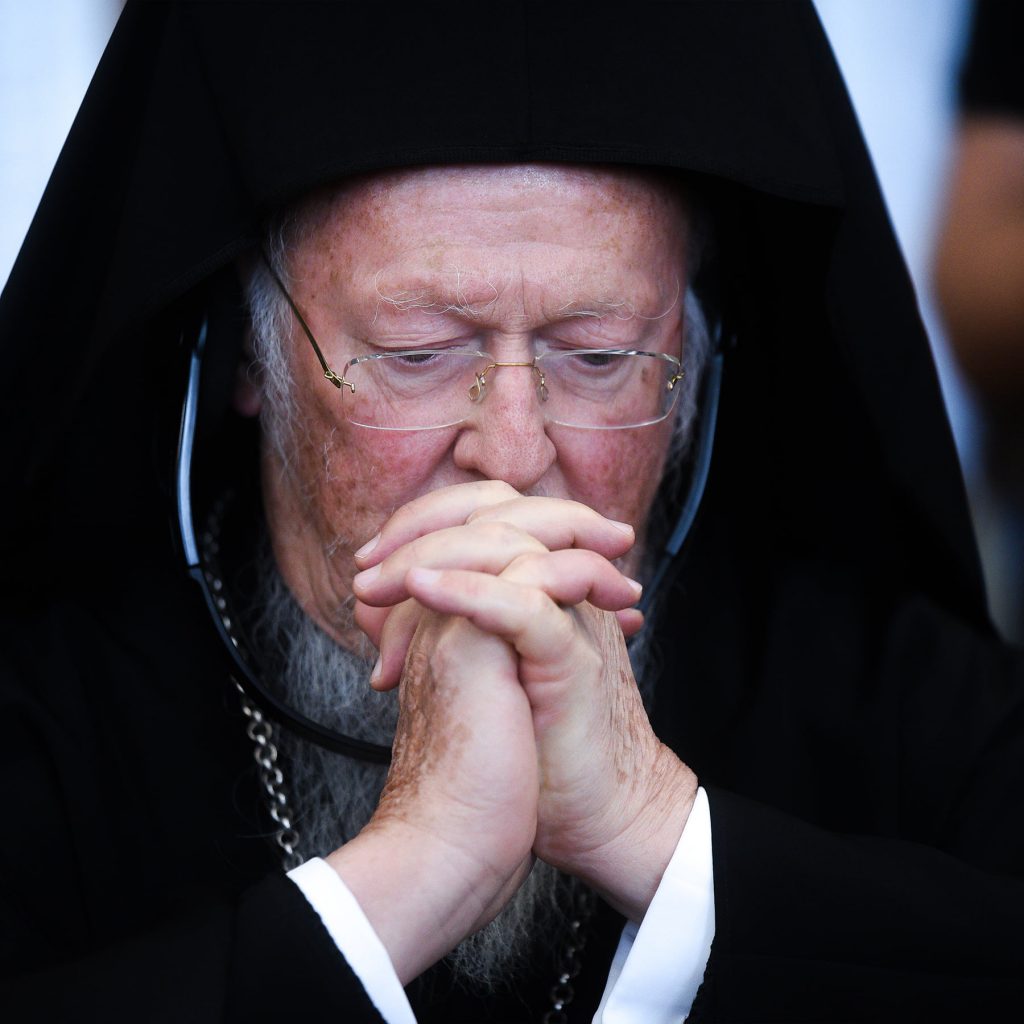
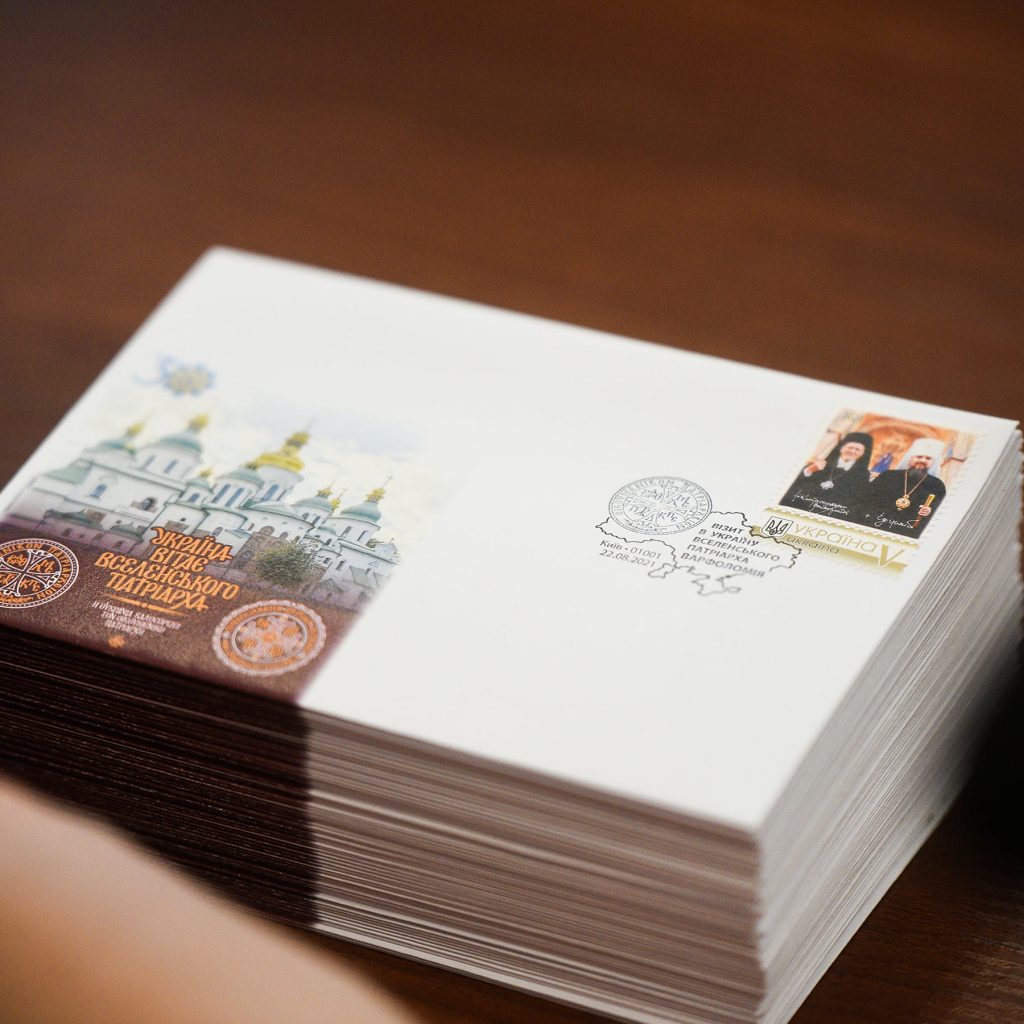
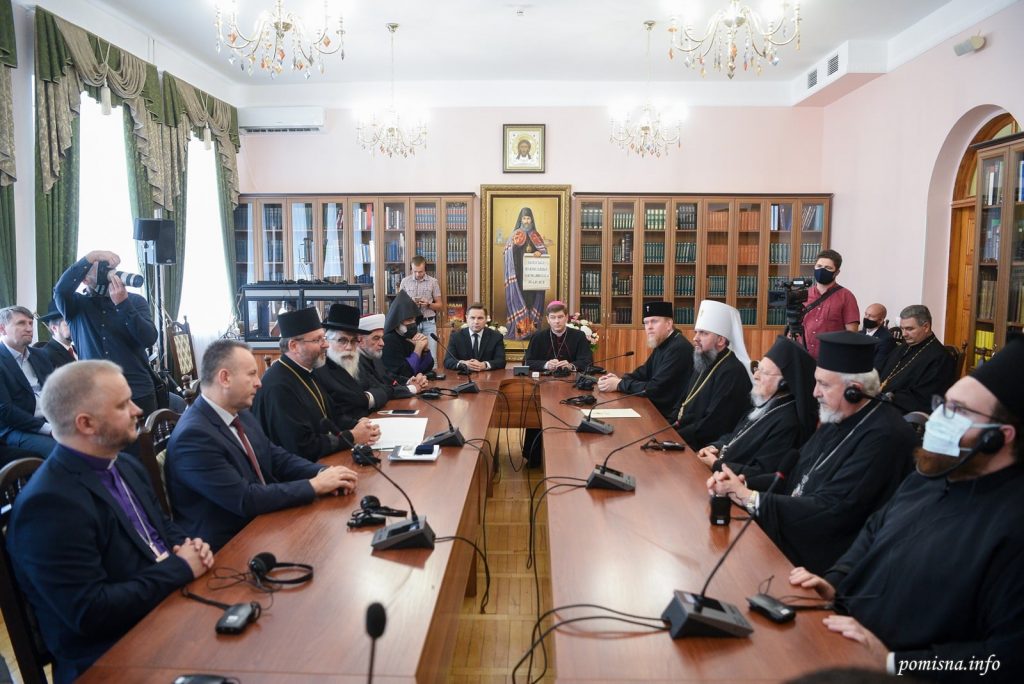





























Ομιλία της Α.Θ.Παναγιότητος του Οικουμενικού Πατριάρχου κ.κ. Βαρθολομαίου στο Ουκρανικό Συμβούλιο Εκκλησιών και Θρησκευτικών Οργανισμών:
* * *
Eminences, Excellences,
Dear Archbishop Sviatoslav, Chairman of the Ukrainian Council of Churches and Religious Organizations,
Beloved religious leaders,
Honored Guests,
Distinguished Participants,
Ladies and Gentlemen,
It is a privilege and an honor to be among you today because you symbolize hope for Ukraine not only individually, but also and especially collectively. We have come to this wonderful country to pay our respect to the spirit of freedom and independence that you have embodied for thirty years, despite the many tensions and challenges that you have experienced. As we stand among this diverse group of Christian representatives and of religious leaders, we cannot help but tell ourselves how important inter-Christian and interfaith dialogue is in today’s world.
The word “dialogue,” διάλογος, which is so commonly used to define an exceptionally diverse array of realities, resonates strongly as we come together tonight. Dialogue is the means by which we are called to resolve our divisions, to foster resilience, to fight against prejudices and intolerance, to promote peace and accord, solidarity and cooperation. It is a sign of hope that despite the horrors of the 20th century, the most violent era in the history of humanity, our understanding of dialogue has become an increasingly central instrument for building bridges and for reconciliation. This move toward rapprochement and reconciliation in our world is strongly evidenced through the Christian engagement in ecumenical dialogue. The Ecumenical Patriarchate in particular has proved to be a pioneer alongside other Churches and Christian communities in creating a genuine multilateral institution for the promotion of Christian unity. In the aftermath of the Second World War, the need for a global Christian organization was brought to fruition with the creation of the World Council of Churches in 1948, based on two crucial principles: a sincere dialogue regarding theological issues, and an acceptance of the need for joint social action.
The Orthodox Church’s involvement in the ecumenical movement has also been depended upon the willingness of other Churches to break down the walls of mistrust and separation. In this regard, a radical and positive turn was taken during the Second Vatican Council, when the Roman-Catholic Church decided on the fundamental necessity of a rapprochement between Christians, and especially with the Orthodox Church. One of the most important events to emerge from that decision was, without a doubt, the historic meeting in Jerusalem of Pope Paul VI and Ecumenical Patriarch Athenagoras in January 1964. In December 1965, in a very prophetic gesture, the same two primates commonly decided — as a visible sign of their desire to restore the bond of Eucharistic communion that had been ruptured for centuries — to simultaneously lift the anathemas of 1054, establishing the foundation for the bridge that we continue to design and build upon into the present age and beyond. The “dialogue of love” between the two sister Churches became a “dialogue of truth” with the establishment of the Joint International Commission for Theological Dialogue between the Catholic Church and the Orthodox Church as a whole in 1979. Since then, the many ties and ecumenical bonds that bring Christians closer together are plenty in the witness of our common desire for a renewed unity in communion.
Dialogue is equally important among faith traditions. In the Encyclical of the Holy and Great Council of the Orthodox Church convened in Crete in June 2016, one reads that, “Honest interfaith dialogue contributes to the development of mutual trust and to the promotion of peace and reconciliation. The Church strives to make ‘the peace from on high’ more tangibly felt on earth. True peace is not achieved by force of arms, but only through love that ‘does not seek its own’ (1 Cor 13.5). The oil of faith must be used to soothe and heal the wounds of others, not to rekindle new fires of hatred” (par. 17).
For the Orthodox Church, interfaith dialogue is rooted, from its very beginning, to the exposure of Orthodoxy itself to religiously pluralistic environments. The interfaith experience in our contemporary multicultural societies is powerfully linked to the church’s coexistence with religious actors and communities of diverse sensitivities and traditions. However, we equally experience some very strong reactions against interfaith dialogue. The rise of religious fundamentalism and extremism, hatred and ethnophyletism is a phenomenon that cuts across all religious traditions, producing self-isolation, insularity and rejection of otherness, attitudes which negate the authentic mission of religion. Extremism and hatred seek to privatize the truth by promoting an ethos of mutual exclusivity. On the contrary, we must try — in faithfulness to our respective faith traditions — to encourage mutual respect and co-action in a spirit of peace and solidarity. A recent document entitled For the Life of the World. Toward a Social Ethos of the Orthodox Church, approved for publication by the Holy and Sacred Synod of the Ecumenical Patriarchate, reminds us that “interreligious encounters and dialogue are and will continue to be important means through which respect for religious differences and proclamation of the truth are realized. Interreligious dialogue is not merely about finding common ground or identifying areas of commonality; it is also an encounter with others on a personal and human level. It requires respect for the human person, created in God’s image, and for God’s love of all humanity and all creation” (par. 60). In like manner, we are called here with the peace of true fellowship to act on these assertions and come closer to live in harmony with one another.
Ladies and Gentlemen,
An essential precondition for effective dialogue is mutual trust. We cannot really know and understand the other, unless through an encounter where confidence prevails. We firmly believe in the power and persuasion of true dialogue, which knows no losers. We pray wholeheartedly that the merciful God will enable us to cultivate such an ethos of dialogue and reconciliation, seeing and acknowledging His existence everywhere, a presence that shines forth in all places, and especially when we come together in a spirit of love and respect.
Thank you for your kind attention. God bless us all!

